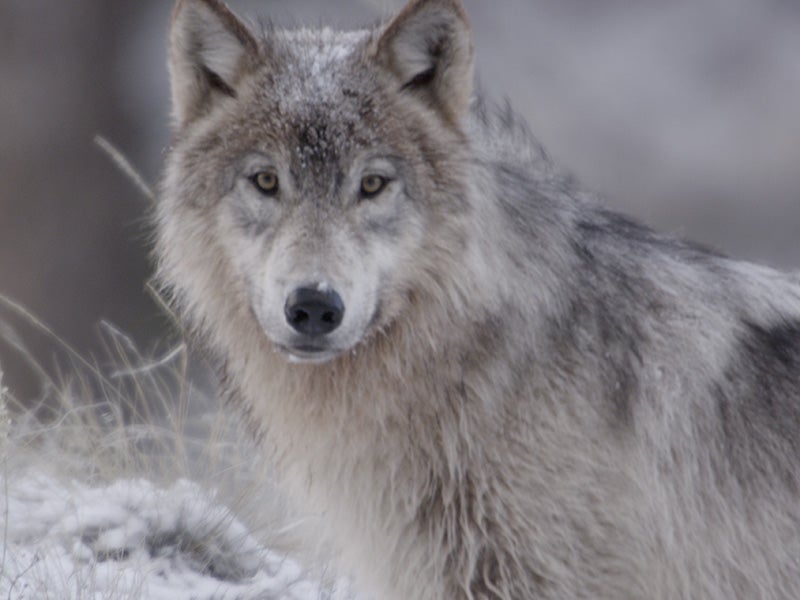Wolf Packs Targeted by Idaho Eradication Plan
Despite enacting the world’s first and best endangered species law, our hatred toward the wolf continues to loom large in some parts of this country. Consider Idaho, where the wolf lost its endangered species listing in 2011 and faces hostile measures.

This page was published 12 years ago. Find the latest on Earthjustice’s work.
Despite enacting the world’s first and best endangered species law, our hatred toward the wolf continues to loom large in some parts of this country. Consider Idaho, where the wolf lost its endangered species listing in 2011 and faces hostile measures.
During the past two weeks, Earthjustice has been in court asking a federal judge to halt Idaho’s unprecedented program to kill two wolf packs deep within the largest forested wilderness area in the lower-48 states. These wolves live on federal land, miles and miles away from ranches and civilization. As of Friday, seven had been killed by a hunter-trapper hired by the state.
Idaho’s goal is to grow elk populations for outfitters and recreational hunters. To that end, the state’s Department of Fish and Game sent its hunter-trapper deep into the 2.4-million-acre Frank Church-River of No Return Wilderness to exterminate the Golden and Monumental packs. The U.S. Forest Service, which is responsible for preserving the wilderness on behalf of the American people, literally opened the door for the extermination program by providing use of a Forest Service cabin to support wolf extermination activities.
The Golden Pack and Monumental pack wolves are featured in the second half of “River Of No Return,” a film featured in the Nature series on PBS that can be viewed for free online. It offers a compelling depiction of the animals and the wilderness environment that we are fighting to preserve in this case.
With a wider angle lens, we’re also in court to challenge the federal government’s premature removal of Endangered Species Act protections for gray wolves in Wyoming, a state that now allows shoot-on-sight killing of wolves in more than 80 percent of its area.
Since the government’s 2012 delisting of wolves in Wyoming, 130 wolves have been killed, including numerous wolves that normally reside in Yellowstone National Park but occasionally cross the park boundary into Wyoming, where they fall under the jurisdiction of a state with a track record of hostility toward wolves. Among the wolves killed is one known as 832F, who was the alpha female of a frequently watched pack long studied by Yellowstone wolf researchers.
For more than 20 years, Earthjustice has been fighting to protect wolves and their native ecosystems. Last December, Earthjustice and our coalition partners delivered nearly one million letters to the Department of Interior, urging the Obama administration to not delist wolves nationally. The proposed rule is under consideration now. Those of us that find the cruelty of Idaho, Wyoming and other wolf-killing states intolerable will be watching.
As Mahatma Gandhi said, “The greatness of a nation and its moral progress can be judged by the way its animals are treated.”
Earthjustice’s Rocky Mountain office protects the region’s iconic public lands, wildlife species, and precious water resources; defends Tribes and disparately impacted communities fighting to live in a healthy environment; and works to accelerate the region’s transition to 100% clean energy.